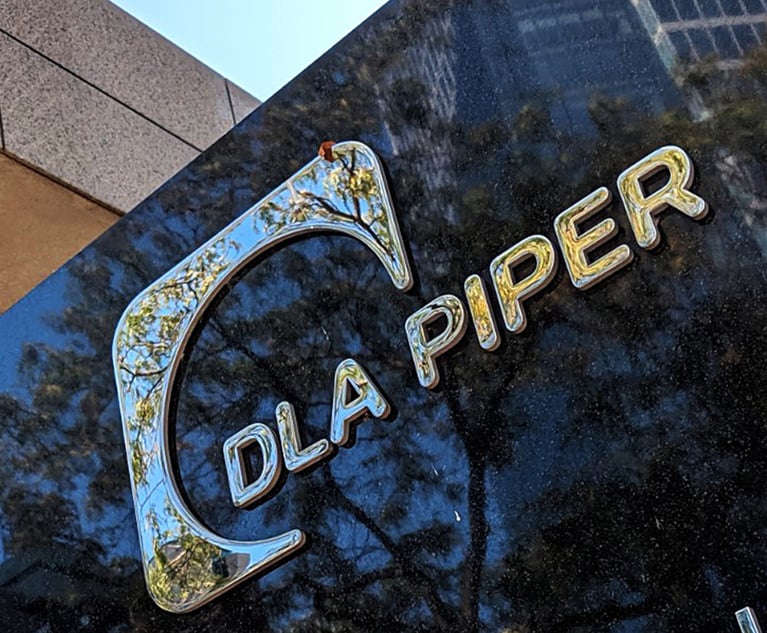 Noah Zandan, CEO and cofounder of Quantified Communications.
Noah Zandan, CEO and cofounder of Quantified Communications.If You Really Want to Influence Judges and Juries, Zandan Says Quit What You're Doing and Do This Instead
"A lot of people think about influence like, 'I have to prepare the right argument; I have to prepare the right closing statement; the words need to be perfect.' Our research says it's a lot about how you deliver those that actually influences humans," said Noah Zandan.
June 14, 2019 at 01:52 PM
3 minute read
Noah Zandan wants to make clear he's not a lawyer.
But it could benefit litigators greatly to hear what he's got to say, if they truly want to influence judges and juries–who, in the end, are only human.
Zandan, CEO and co-founder of Quantified Communications in Austin, told a packed room of attorneys at the State Bar of Texas Annual Meeting in Austin on Thursday about the artificial intelligence system that his company has created to use behavioral science to measure precisely how leaders should communicate to gain the most influence and impact.
Texas Lawyer caught up with Zandan after his presentation to ask a few questions about how litigators can earn influence in the courtroom. Here are his answers, and you can hear Zandan explaining his research himself on this Texas bar podcast.
Litigators want to influence judges and juries during trials. Can you explain why it may benefit them to check out your research and findings?
A lot of people think about influence like, 'I have to prepare the right argument; I have to prepare the right closing statement; the words need to be perfect.' Our research says it's a lot about how you deliver those that actually influences humans. In the end, even the judge, even the jury — as much as we want to get the content right — are humans and are going to respond in a human way to a story that connects to them. That connection can happen logically, but even more fundamentally and strongly, it will happen through emotional connection and intuitive connection.
You mentioned that speakers focus all of their preparation on content — their speech and presentation slides — but for audiences, content is the least important thing. What would you recommend lawyers to focus on instead, to really boost their influence?
When we study it, people spend 90% of the time preparing the content, and 10% thinking of how they are going to deliver the content. We would suggest that go to like 50-50, if not even further, toward the side of: think about how you want to replicate the room; think about how you're going to make eye contact, who you are going to look at, what the big moments are, when you are going to want to pause. Great lawyers you watch — they do this. It comes naturally. The younger lawyers think so much like, 'I've got to write my argument, I've got to get it perfect' — instead of how to deliver it.
This content has been archived. It is available through our partners, LexisNexis® and Bloomberg Law.
To view this content, please continue to their sites.
Not a Lexis Subscriber?
Subscribe Now
Not a Bloomberg Law Subscriber?
Subscribe Now
NOT FOR REPRINT
© 2024 ALM Global, LLC, All Rights Reserved. Request academic re-use from www.copyright.com. All other uses, submit a request to [email protected]. For more information visit Asset & Logo Licensing.
You Might Like
View All
From ‘Deep Sadness’ to Little Concern, Gaetz’s Nomination Draws Sharp Reaction From Lawyers
7 minute read
DLA Piper Sued by 2 Houston Companies, Alleging a 'Fake Lawyer' Represented Them in Argentina
3 minute read

Trending Stories
Who Got The Work
Michael G. Bongiorno, Andrew Scott Dulberg and Elizabeth E. Driscoll from Wilmer Cutler Pickering Hale and Dorr have stepped in to represent Symbotic Inc., an A.I.-enabled technology platform that focuses on increasing supply chain efficiency, and other defendants in a pending shareholder derivative lawsuit. The case, filed Oct. 2 in Massachusetts District Court by the Brown Law Firm on behalf of Stephen Austen, accuses certain officers and directors of misleading investors in regard to Symbotic's potential for margin growth by failing to disclose that the company was not equipped to timely deploy its systems or manage expenses through project delays. The case, assigned to U.S. District Judge Nathaniel M. Gorton, is 1:24-cv-12522, Austen v. Cohen et al.
Who Got The Work
Edmund Polubinski and Marie Killmond of Davis Polk & Wardwell have entered appearances for data platform software development company MongoDB and other defendants in a pending shareholder derivative lawsuit. The action, filed Oct. 7 in New York Southern District Court by the Brown Law Firm, accuses the company's directors and/or officers of falsely expressing confidence in the company’s restructuring of its sales incentive plan and downplaying the severity of decreases in its upfront commitments. The case is 1:24-cv-07594, Roy v. Ittycheria et al.
Who Got The Work
Amy O. Bruchs and Kurt F. Ellison of Michael Best & Friedrich have entered appearances for Epic Systems Corp. in a pending employment discrimination lawsuit. The suit was filed Sept. 7 in Wisconsin Western District Court by Levine Eisberner LLC and Siri & Glimstad on behalf of a project manager who claims that he was wrongfully terminated after applying for a religious exemption to the defendant's COVID-19 vaccine mandate. The case, assigned to U.S. Magistrate Judge Anita Marie Boor, is 3:24-cv-00630, Secker, Nathan v. Epic Systems Corporation.
Who Got The Work
David X. Sullivan, Thomas J. Finn and Gregory A. Hall from McCarter & English have entered appearances for Sunrun Installation Services in a pending civil rights lawsuit. The complaint was filed Sept. 4 in Connecticut District Court by attorney Robert M. Berke on behalf of former employee George Edward Steins, who was arrested and charged with employing an unregistered home improvement salesperson. The complaint alleges that had Sunrun informed the Connecticut Department of Consumer Protection that the plaintiff's employment had ended in 2017 and that he no longer held Sunrun's home improvement contractor license, he would not have been hit with charges, which were dismissed in May 2024. The case, assigned to U.S. District Judge Jeffrey A. Meyer, is 3:24-cv-01423, Steins v. Sunrun, Inc. et al.
Who Got The Work
Greenberg Traurig shareholder Joshua L. Raskin has entered an appearance for boohoo.com UK Ltd. in a pending patent infringement lawsuit. The suit, filed Sept. 3 in Texas Eastern District Court by Rozier Hardt McDonough on behalf of Alto Dynamics, asserts five patents related to an online shopping platform. The case, assigned to U.S. District Judge Rodney Gilstrap, is 2:24-cv-00719, Alto Dynamics, LLC v. boohoo.com UK Limited.
Featured Firms
Law Offices of Gary Martin Hays & Associates, P.C.
(470) 294-1674
Law Offices of Mark E. Salomone
(857) 444-6468
Smith & Hassler
(713) 739-1250






